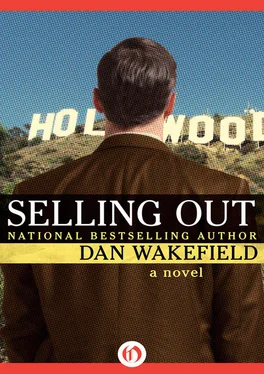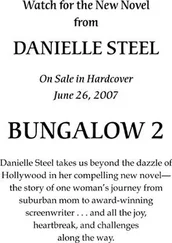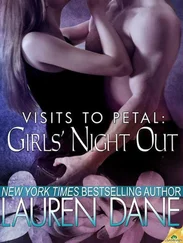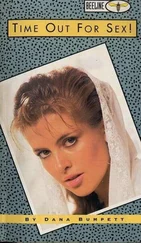Selling Out: A Novel
Dan Wakefield
For Joe Hardy and Agnes Nixon,
friends regardless of ratings
He was flying.
He was thirty-five thousand feet above America, in the clouds, in first class, with the woman he loved, on his way to make more money than he’d ever dreamed of making, for doing something he had only dreamed of doing. The whole thing was so good that it seemed, if anything, too good. The idea of such abundant fortune stirred in Perry Moss a certain apprehension as well as elation, a nervous impulse to glance back over his shoulder and make sure nothing dangerous was bearing down on him.
Perry pressed his seat button back to upright, pulled off the earphones that were transmitting soothing tones from the Oldies but Goodies channel, tapped the shoulder of the lovely woman beside him, and cleared his throat in an official-sounding prelude to speech.
“Remember now. This whole thing’s only a fantasy. You know? An adventure. We’ll enjoy it, get the most out of it, but we won’t be taken in by it. OK?”
Perry realized he was pointing a finger at her as he spoke, as if she were his student instead of his wife. His voice was pitched too loud, in the tone for giving a lecture to a hall full of raw freshmen. He suspected the audience he was trying so hard to educate was really himself.
“I know,” she nodded solemnly, “we’ve got to keep our wits about us.”
Then her sudden smile broke out, and she whispered with delicious conspiracy.
“But don’t you love it?”
“Love you ,” he murmured happily.
He nuzzled a kiss on her neck and she tenderly stroked his head, then drew away to look at him. Her bright face glowed with a mischievous grin.
“You know what I love most about it?” she asked.
Perry pretended to muse on this, then snapped his fingers.
“You can take up surfing? I bet that’s it. You’ve always wanted to hang ten.”
She poked a finger in his side.
“What I love most,” she went on, “is that nobody else can picture it. Us . In Holly wood!”
Perry couldn’t help smiling as he recalled the dour, disapproving faces of most of his colleagues on the faculty, and even some of his favorite students, when they heard he was going out to Hollywood to write a script for some kind of television program—not even for PBS, but a regular commercial network!
There were dire mutterings about “tinseltown,” “wasteland,” “glitter,” and even “selling out,” as if any kind of involvement with mass entertainment—especially TV—was a betrayal of intellectual principle, a kind of consorting with the cultural enemy. Haviland College, in southern Vermont, was neither as prestigious nor as pompous as Harvard, but it did take pride in its reputation as an outlying adjunct of the Ivy League, and harbored the ingrained academic distrust of the “popular” in arts and entertainment.
His colleagues’ knee-jerk reaction of shocked sensibility was followed by a wave of what Perry considered their condescending concern for his own welfare. They harrumphed and glowered and trotted out the tired old cliches about what Hollywood “did” to people (as if the place itself were some malevolent force, a form of infectious disease), capped by the old chestnut about poor Scott Fitzgerald meeting his early demise because of “Hollywood.”
Jane of course came up with the perfect response for faculty cocktail parties.
“We’re not going Hollywood,” she explained sweetly. “We’re just going to Hollywood.”
Besides, they were only going for a month. The January semester break. It would be like a paid vacation with a lottery-sized bonus thrown in.
A lark.
Perry pressed his seat back again to a reclining position and stoked up his pipe. He secretly enjoyed the hullabaloo this trip was causing within his little community. It was not just the professional aspect of it that had all the tongues wagging, it was also the personal surprise, the seeming contradiction of “us in Hollywood.”
The juxtaposition of images clashed in an almost comic way, like Supreme Court justices wearing funny hats, or the Pittsburgh Steelers performing Swan Lake . Perry and Jane Moss were regarded as the temperamental opposites of tinsel.
They were tweed. They were corduroy and cotton, with red flannel nightshirts in winter. They grew their own vegetables, made their own hearty stews. They even, literally, paddled their own canoe. Perry confided in Jane that seeing reruns of “Centennial” on television had rekindled his boyhood dream of playing intrepid explorer in his own canoe, and damned if she didn’t insist they buy one. They not only made overnight camping trips down the nearby Musquam River, but sometimes “went on Jane’s trip” by dressing up for Victorian picnics. Jane would loll in the bow of the canoe in a long dress and trail a parasol in the water while Perry, with hair slicked back and parted in the middle, happily did the paddling. He had never before known a woman with whom he not only shared but enacted personal fantasies, and the resulting trust and intimacy enriched their love and their lovemaking. Slowly lifting that long skirt as she lay on the blanket near the picnic hamper was the start of a waking dream he would never forget …
A gentle nudge from Jane roused Perry from his happy reverie, calling attention to the lavish cart of desserts the flight attendant had wheeled conveniently to his side. There were different flavors of ice cream, exotic sauces, and fruit and nut toppings to choose from, any combination of which the passenger could pick for his own personally selected sundae. It was a kind of do-it-yourself dessert, except the flight attendant did it for you.
Talk about first class!
Perry was already full, and he had sworn off rich desserts for the New Year, but this was a special circumstance. His virgin first-class flight, at someone else’s expense, on a trip that might make the whole course of his life more luxurious. What the hell. He rapped out the ashes from his pipe and turned his full attention to the array of luscious possibilities.
Before he finished eating his fantasy sundae Perry wished he had held out for fruit and cheese, or at least something sweet but simple, like vanilla ice cream with chocolate syrup. The exotic mixture he had chosen had not upset his stomach, but rather his mind—or was it his conscience? Right in the midst of a glorious taste of the mocha royale ice cream topped with crushed pecans and Kahlúa sauce, he thought of the dean. The one person who had really put a damper on this whole adventure.
Dean Gordon Rackley was one of those smug academic types whose literary admiration was reserved for the kind of writer who could get the most footnotes on the head of a pin. Years ago, when Perry first started selling his short stories to magazines like Playboy and Redbook as well as Ploughshares and Partisan Review , it was Rackley alone among the faculty who made the obligatory snide remark about getting slick on us. Later, when some of those same stories were selected for publication in prestigious collections like The Best American Short Stories , and the O. Henry Prize stories, Perry with relish presented the dean with copies, adorned with excruciatingly polite inscriptions.
Perry had braced himself when he saw the dean bearing down on him at one of those faculty sherries just after the news of Hollywood broke. Instead of the expected needle in the ribs, however, Rackley gave him an unaccustomed clasp on the shoulder.
“What a delightful opportunity for you!” the dean exclaimed with robust good cheer.
Читать дальше












